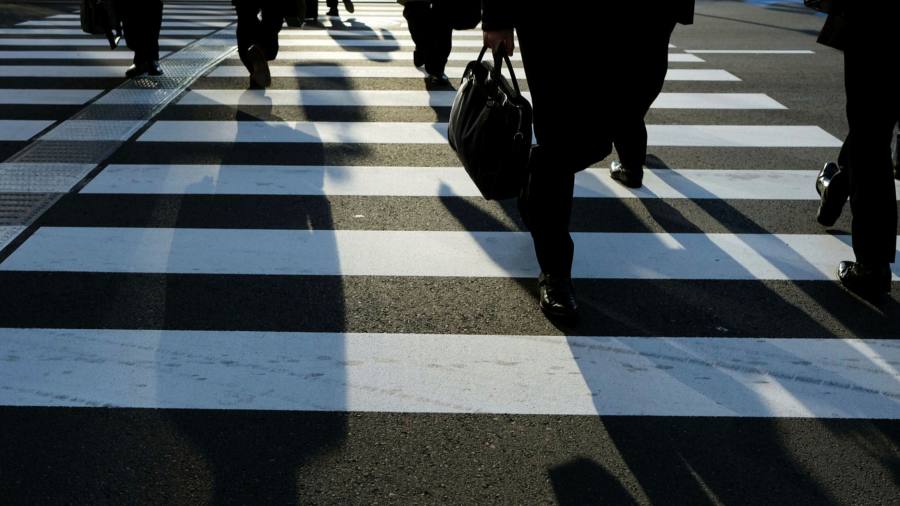[ad_1]
Last Friday afternoon, moments after the resignation of Yoshiro Mori as president of the Tokyo Olympics committee, a board member of one of the games’ largest sponsor companies texted me a terse Japanese proverb: “A lid has been placed on the thing that stinks.â€
The image of a cosmetic quick-fix was well chosen. The forced departure of 83-year-old Mori, an outrage-packed week after he asserted that women don’t belong on boards, may end the immediate stench. But its source — a mix of ingrained gender inequality, invisible networks that support the incompetent, excessive deference to authority, opaque habits of governance and other stabilisers of the unacceptable — continues to fester, untreated in the pot. It is a smell that hangs around too much of corporate Japan.
Mori’s clumsy misogyny will soon be forgotten. But Japan’s efforts to deal with the underlying problems, which affect the day-to-day workings of corporate Japan far more extensively and critically than they do short-term showcases like the Olympics, are the real game. Address corporate culture, runs the logic, and the rest of Japan will follow. Previous signals have seemed positive. More recent ones, say governance experts, portend disappointment.
For a gauge of progress, focus attention on the Tokyo stock market’s preparations for what has been billed as a once-in-a-generation moment of reform. The plan is nearing the end of a period of public consultation and will come into effect in April 2022. It centres on a raft of new listing requirements, plus a streamlining of the TSE’s market into three segments. These will comprise a “premium†board, a “growth†board for start-ups and a “standard†one for everything else.
The original point of this was to impose investment-luring levels of discipline on a market where, over the past 30 years, the supposed “blue chip†first section has expanded into a 2,193-strong stew of companies.
Many of them are minnows, unclear as to why they are listed at all; many own extensive crossholdings of shares in one another; and many have lacklustre governance standards. As originally envisaged, the premium board, with its minimum size and free float requirement, would represent the biggest and best of corporate Japan. The kudos of being among its members would, in theory, drive companies to new heights of self-improvement and so boost corporate value.
Adding to the sense of lid-lifting and bad smell elimination, the background to this reform is an impending revision of Japan’s 2015 corporate governance code. Proposed changes will be decided upon by the Financial Services Agency, and include the suggestion that it should be compulsory for listed companies, in which a shareholder owns 30 per cent or more, to have a majority of independent directors. Crucially, membership of TSE’s premium board will depend on companies complying with the code, or explaining why not.
Back in 2018, when discussion about the TSE shake-up properly entered the public sphere, it came with a real feeling of progress. Shinzo Abe, with his reformist platform, was prime minister. The proposals from the TSE — hardly known for its ferocity as a regulator — were unexpectedly bold. The FSA also looked more assertive than ever before. The momentum seemed strong. Significantly, it provided the kind of sweeping narrative of progress that ageing and shrinking Japan needs.
Some continue to see progress, and believe it will accelerate. Others see diluted reform and, in the view of CLSA strategist Nicholas Smith, a missed opportunity. Led by the business lobby, old Japan has resisted change and both the TSE and government appear to have compromised. How so?
Without legal enforcement, the FSA’s “comply or explain†rule will probably produce only an inventive new line of wafer-thin explanation for non-compliance. Governance code targets on independent board memberships and more gender diversity will remain voluntary. The definition of “independent†board member will remain loose by international standards. And the minimum market capitalisation for TSE premium market membership looks set to be just Y10bn rather than the Y100bn originally proposed.
That may remove about 600 companies trading in the TSE’s First Section. But it will still leave 1,500 firms that cannot be considered part of a streamlined, governance-conscious elite.Â
According to the latest survey by the Asian Corporate Governance Association, Japan’s previous improvements means it now ranks an underwhelming fifth in Asia, with Malaysia. Japan may well struggle to rise further until everyone is brave enough to lift the lid.
[ad_2]
Source link





